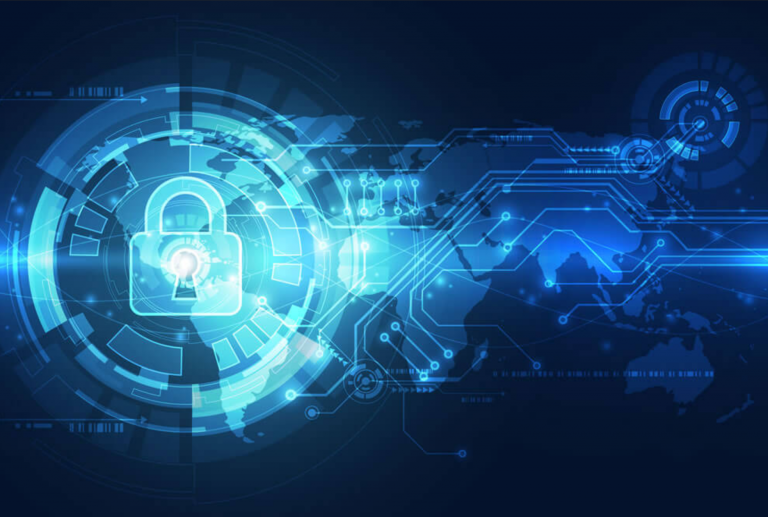
Cybersecurity involves all practices used to keep electronic data and computer systems safe. It mostly protects against data breaches. According to Risk Based Security, in 2020, there were 3,932 data breaches, which amounted to 37 billion records. This is the reason many corporates today have invested heavily in cybersecurity. Here is some basic information on the importance of corporate cybersecurity.
- Rising Cost Of Breaches
Data breaches do not only tarnish a company’s reputation, but they also affect an organization’s finances. A recent study predicted that the cost of global cybercrime damages would reach $6 trillion by 2021. The effects of cybercrime are what make it costly. For example, one study shows that cybercrime slows down production, causes delivery delays, and stops production for a significant period.
For example, in 2015, the French television channel TV5 Monde was breached, causing it to rebuild its IT sector. This restructuring took six months. Similarly, in 2017, Saint-Gobain, a renowned manufacturer, sustained a €220 million loss after being attacked by ransomware. The same year, a virus known as “WannaCry” infected over 300,000 business workstations in 150 countries. This infection caused the organizations to close down temporarily.
- The Proliferation of Internet Of Things (IoT) Devices
Currently, there are many devices connected to the internet. The Internet of Things technology has simplified and accelerated the pace at which tasks are accomplished. However, if devices connected to the internet are not properly secured, criminals can easily hack into a corporation’s systems through IoT vulnerabilities.
Some of the threats to IoT technology include Denial of Service (DoS) attacks, identity theft, and social engineering. A DoS attack is meant to create a capacity overload in a computer system by flooding it with requests. This slows down the services of an organization. For example, an airline may be unable to process new tickets and check flight status after a DoS attack.
Hackers can also attack IoT devices like smart home devices to acquire data about users and organizations. This information can be used to execute identity theft. Lastly, cybercriminals can lure people into giving up their personal information through social engineering attacks. These attacks are easier for IoT devices like wearables, which collect a lot of personal identifiable information.
- More Sophisticated Hacking Tools
Cybersecurity has become a priority for many businesses because of advancements in technology that have led to more sophisticated hacking tools. The easy access of hacking programs and tools means that less skilled cybercriminals can breach business computer networks.
Cybercrime has been commercialized to the point that anyone who has an internet connection and bad intentions can hack into your system. One of the most common hacking tools is phishing attacks. Some examples of phishing attacks include smishing, vishing, spear phishing, and deceptive phishing,
Smishing is an attack that is executed through SMS text messages to steal information or money. Similarly, vishing is done through the telephone, where the hacker pretends to know the target so they can steal sensitive data or steal funds. Spear phishing and deceptive phishing are executed through the internet. Spear phishing is done through social media, while deceptive phishing is conducted through email. The intent in both cases is to steal information by posing as a legitimate person or business.
- Severity of Attacks
The number of cyber-attacks is not the only reason businesses are concerned about cybersecurity. The severity of attacks is rising as well. According to a report by PwC, cyber-attacks have become more destructive and are now aiming for a broader range of information and vulnerabilities.
Politicians are also at risk. This is the reason the Obama Administration proposed a budget of $19 billion for cybersecurity issues. There was a time when Hillary Clinton’s private emails were exposed during presidential campaigns, which further emphasized the need for strong cybersecurity measures.
In late 2017, eight members of the National Infrastructure Advisory Council that deals with the country’s response to cybercrime dropped out of their posts. These members resigned because they believed that Trump’s administration was not addressing the increase in cybersecurity threats. More recently, a group of senators proposed an amendment to the 2021 National Defense Authorization Act. The amendment would require Homeland Security to hire cybersecurity coordinators in each state. The scope and intensity of cyber-attacks is alarming and should provoke corporations to establish stronger cybersecurity policies to address the current threats.
Conclusion
Cybersecurity has become a significant concern ever since the rise in the number of internet subscribers, social media consumers, and digital devices. In business, an ounce of prevention is better than a pound of cure. Therefore, corporations that deal with sensitive information like healthcare data, credit card data, and trade secrets should acknowledge the threat that cybercriminals pose to their business and implement security solutions like anti-phishing, security risk assessment tools, and fraud monitoring methods.
Author:
Reciprocity – Reciprocity has been helping businesses make their compliance and risk officers more nimble since 2009. Using lightweight software designed for hot growing companies, our GRC Software encourages compliance, risk and audit managers to act more nimbly and stand toe-to-toe with the fast-paced world of business.
